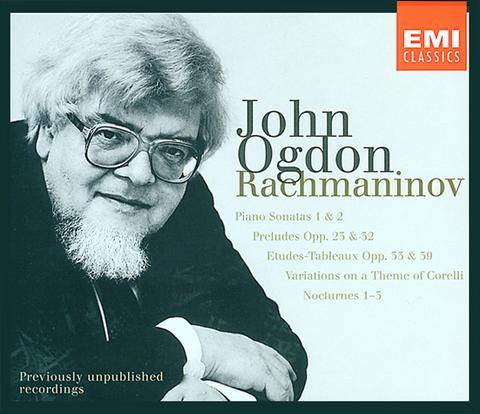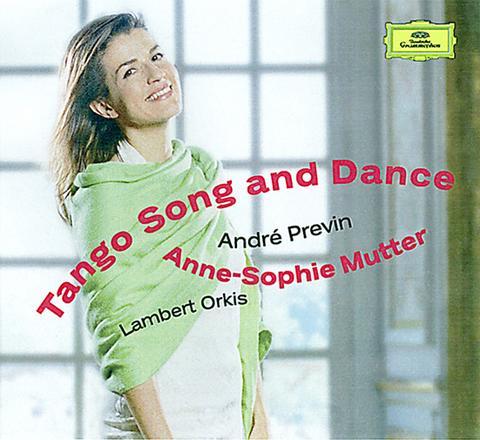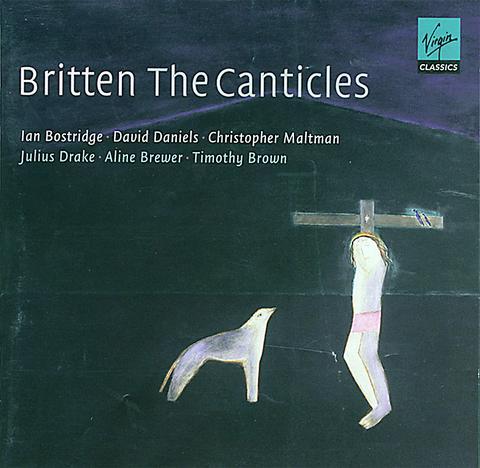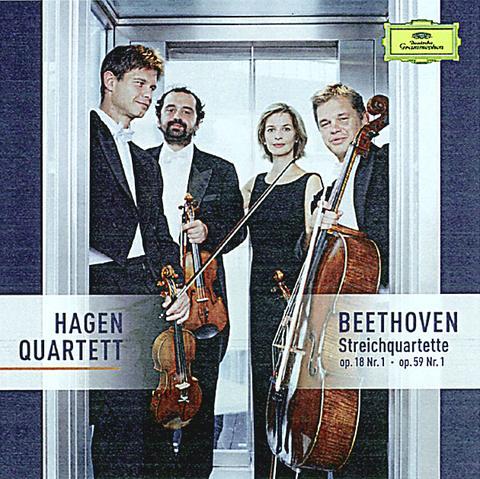All musical enjoyment, it could be argued, is a matter of both taste and temperament. Tastes can be learnt, but temperament can't be changed, presumably. So when there are musical frontiers individuals try to cross but can't, it's probably their temperament that's the real obstacle. I used to have a friend who was a fan of the 1960s giant Captain Beefheart. "If you can cross the Beefheart Barrier," he used to say, "you'll be in paradise." I never managed it unfortunately.
John Ogdon is often described as one of the finest classical pianists ever to have been born in the British Isles. After a celebrity career beginning when he won joint first prize in Moscow's Tchaikovsky Competition in 1962 (his co-winner was Vladmir Ashkenazy), he suffered a breakdown in 1973 from the schizophrenia that had also afflicted his father. He recovered, however, first teaching and giving master classes at Indiana University in the US, then performing again in public in the early 1980s. These magnificent studio recordings of Rachmaninov date from the year before his death, aged 52, in 1989. Why they haven't been issued before isn't explained.

The variety of Rachmaninov's piano music as displayed here may surprise some people. But Ogdon used to love to tackle gargantuan works such as his First Piano Sonata, and resurrect things well-nigh forgotten such as the three early Nocturnes. The explanatory notes by Jeremy Nicholas are particularly astute and give a strong sense of the exceptional phenomenon that, even in his later years, Ogdon was. When this bear-like figure shambled on stage, people knew what to expect -- legendary sight-reading ability, great tenderness and mammoth feats of endurance.

These fine CDs, combining natural lyricism with an unsurpassable technique, contain a wealth of music. They would be an investment to last a lifetime, and are in addition a tribute to an extraordinary man.
The American pianist Lambert Orkis must feel in this recording rather like what the British call a "gooseberry" and the Taiwanese a "lightbulb" -- an intruder on a romantic couple, Andre Previn and Anne-Sophie Mutter. Previn's Tango Song & Dance violin sonata, which opens this CD, was written as a celebration of their intention to marry, the composer reveals in an accompanying joint interview. But the recording is in fact a recital of the works for violin and piano -- by Brahms, Gershwin, Kreisler, Faure and Previn -- that Mutter and Orkis played on their European concert tour last May. Here, however, Previn takes over the piano for the Gershwin item (arrangements of four melodies from (Porgy and Bess), and for his own composition.

These last two pieces might sound slightly "crossover" in character, but in the interview the couple are resolutely opposed to what they clearly consider such unnatural concert exhibitions. Mutter would prefer to climb mountains with a Beijing-born student at the school she funds for young string players, or continue her work against landmines, than "change existing musical material into something which it isn't" -- even for US$1 million a night, which she says she has been offered. On the Three Tenors concerts, Previn tartly remarks "I don't think they need to do that."

Clearly they prefer to incorporate modern trends into new, original compositions. Previn's title piece on this CD, for example, shows strong jazz influence, as well as echoes of Korngold's Violin Concerto in the slow movement. The whole CD could be said to represent the couple's answer to "crossover" -- do what you do as well as you can and just hope that people will enjoy it.
The Britten Barrier is another this reviewer has never been able to cross, isolated works excepted. His music seems to contain a nervousness, inviting preciousness in execution that is hard to swallow, and a stubborn root-and-branch denial of Romanticism that is equally hard to take. Whereas a composer like Rachmaninov is happy to combine his own inspiration with the Romantic piano-writing tradition, Britten appears determined to in some sense go it alone. But then there are people for whom his music means a lot -- a matter of temperament again, presumably.
Canticles are sung items in a Christian liturgy, usually derived from a Biblical text. Recorded here are five such works Britten composed over a period of nearly 30 years, though for concert rather than church performance, and for various combinations of voices and instruments. The tenor Ian Bostridge has a voice markedly similar to that of Peter Pears, Britten's lifelong partner and professional colleague for whom these pieces were created. This new CD also contains seven of Britten's folk-song arrangements.
Beethoven's middle and late string quartets have long been treated with great seriousness, even solemnity, by connoisseurs. In a characteristically eulogistic program note on the second of the quartets recorded here, for instance, one Peter Cosse writes of his feelings of gratitude and awe, and concludes, "This music is imperishable for every generation of performers and for their listeners until the very end of time."
The Hagen Quartet bring their celebrated sophistication and dedication to these two works, the first and seventh of the 16 quartet cycle. In brief, this is music of the highest quality finely played and superbly recorded. Even so, such earnestness may still not be to every classical music lover's taste. There is no getting away from the temperament you're born with.

Behind a car repair business on a nondescript Thai street are the cherished pets of a rising TikTok animal influencer: two lions and a 200-kilogram lion-tiger hybrid called “Big George.” Lion ownership is legal in Thailand, and Tharnuwarht Plengkemratch is an enthusiastic advocate, posting updates on his feline companions to nearly three million followers. “They’re playful and affectionate, just like dogs or cats,” he said from inside their cage complex at his home in the northern city of Chiang Mai. Thailand’s captive lion population has exploded in recent years, with nearly 500 registered in zoos, breeding farms, petting cafes and homes. Experts warn the

No one saw it coming. Everyone — including the Chinese Nationalist Party (KMT) — expected at least some of the recall campaigns against 24 of its lawmakers and Hsinchu Mayor Ann Kao (高虹安) to succeed. Underground gamblers reportedly expected between five and eight lawmakers to lose their jobs. All of this analysis made sense, but contained a fatal flaw. The record of the recall campaigns, the collapse of the KMT-led recalls, and polling data all pointed to enthusiastic high turnout in support of the recall campaigns, and that those against the recalls were unenthusiastic and far less likely to vote. That

The unexpected collapse of the recall campaigns is being viewed through many lenses, most of them skewed and self-absorbed. The international media unsurprisingly focuses on what they perceive as the message that Taiwanese voters were sending in the failure of the mass recall, especially to China, the US and to friendly Western nations. This made some sense prior to early last month. One of the main arguments used by recall campaigners for recalling Chinese Nationalist Party (KMT) lawmakers was that they were too pro-China, and by extension not to be trusted with defending the nation. Also by extension, that argument could be

Aug. 4 to Aug. 10 When Coca-Cola finally pushed its way into Taiwan’s market in 1968, it allegedly vowed to wipe out its major domestic rival Hey Song within five years. But Hey Song, which began as a manual operation in a family cow shed in 1925, had proven its resilience, surviving numerous setbacks — including the loss of autonomy and nearly all its assets due to the Japanese colonial government’s wartime economic policy. By the 1960s, Hey Song had risen to the top of Taiwan’s beverage industry. This success was driven not only by president Chang Wen-chi’s